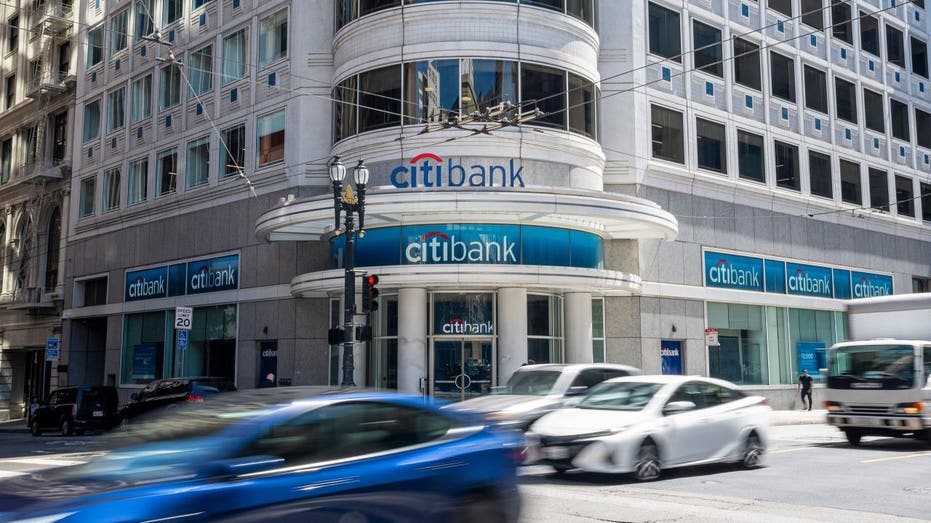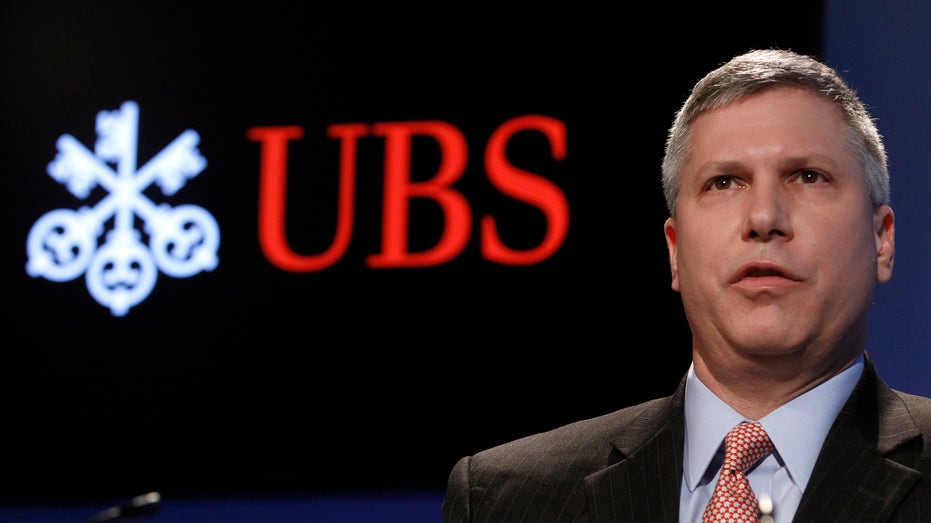Citigroup looks to mend fences with Texas and convince the Lone Star State it's not 'woke'
The banning of Citigroup is part of a bigger and growing trend among red states
Banking concerns are ‘overdone’: Jay Woods
Freedom Capital Markets chief global strategist Jay Woods tells ‘Cavuto: Coast to Coast’ that if the banks stabilize, the ‘rebound’ can be quick as stocks fall on renewed bank worries.
Citigroup is scrambling to convince Texas state officials it isn’t the woke bank they say it is and it’s worthy of once again underwriting municipal bonds in the state, FOX Business has learned.
The banking giant has been barred from underwriting potentially hundreds of millions of dollars in bonds issued by municipalities in Texas and the state itself after falling afoul of a law passed in 2021 by state lawmakers. It prevents a company with so-called "discriminatory" policies toward the firearm and ammunition industry from doing business with any governmental entity in Texas.
The banning of Citigroup is part of a bigger and growing trend. Like Texas, many red states run by Republicans have increasingly opposed what they view as so-called woke polices being adopted by big companies.
These include environmental social governance, or ESG, edicts, an investing technique designed to reduce corporate America’s carbon footprint by redirecting investment dollars to renewable energy sources from fossil fuels and to those companies that take progressive political stances.
ADAM JOHNSON ON THE MARKETS: WE NEED INNOVATIVE BUSINESS PEOPLE, NOT GOVERNMENT FINDING SOLUTIONS
GOP officials say such edicts are a backdoor effort to impose a woke political agenda in the boardroom, and they’re fighting back. In Florida, for instance, Gov. Ron DeSantis has removed a special tax status enjoyed for decades by Disney — one of the state’s largest employers — after it opposed a state law that prevents schools from teaching sex education to toddlers.
Other red state officials, including those in Florida, West Virginia and Texas, are barring asset managers from managing state pension money or underwriting debt over their use of ESG screens.

A Citibank branch in San Francisco April 7, 2023. (David Paul Morris/Bloomberg via Getty Images / Getty Images)
"I remain committed to combating the corporate ESG investment agenda, shielding taxpayers from the extra costs that come with it by shifting the burden to banks and protecting Texas energy companies," Texas Attorney General Ken Paxton told Fox Business in a statement.
Citigroup’s Texas problems stem from a corporate policy by which the bank refuses to do business with firearm manufacturers that sell guns to people who haven’t passed background checks and are younger than 21. It also won’t do business with companies that sell so-called bump stocks and high-capacity magazines that can turn a semi-automatic weapon into something far more deadly.
The company enacted this policy in 2018 after the massacre at Stoneman Douglas High School in Parkland, Florida, Citigroup officials say. In Texas, the firearm business is a $5.6 billion industry, employing over 30,000.
But the nation’s third-biggest bank is now looking to mend fences with Paxton & Co., after being shut out of millions of dollars in state bond deals and possibly millions more depending on how long the ban remains in effect.
It recently held a series of meetings with top Texas officials, including Paxton, to negotiate an end of its ban and reenter the Lone Star state’s lucrative underwriting business. It’s unclear if the meetings will put Citi back in the state’s good graces by changing its firearm policies. A Citigroup spokesman declined to comment on the progress in the negotiations.

Texas Attorney General Ken Paxton leaves the U.S. Supreme Court following arguments over a challenge to a Texas law that bans abortion after six weeks in Washington Nov. 1, 2021. (REUTERS/Evelyn Hockstein / Reuters Photos)
In a statement, the spokesman told Fox Business, "We’re disappointed with the decision and will remain engaged with the Texas AG office to review our options. Citi has been financing public works in Texas for more than 150 years, and we currently have more than 8,500 employees who call Texas home.
"As we have said before, Citi does not discriminate against the firearms sector. Our policy simply uses industry best practices in terms of firearms sales and believe we are in compliance with Texas law."
Another company looking to get off the state’s ban list is Swiss investment giant UBS, but for different reasons. UBS ran afoul of a law that prohibits the state from doing business with investment firms that "boycott energy companies," the lynchpin of the Texas economy.
UBS, like many Wall Street and financial firms, didn't totally boycott doing business with the massive oil and gas industry, but it has been embracing sustainable energy sources in recent years to comply with ESG edicts.
JAMIE DIMON WARNS US DEBT DEFAULT IS ‘POTENTIALLY CATASTROPHIC,’ SAYS JPMORGAN HAS A ‘WAR ROOM’
The Texas oil and gas ban list began when the state comptroller, Glenn Hegar, sent questionnaires to more than 150 companies requesting information to determine if they were directing resources to the sustainable energy industry. UBS was one of nine companies that were then placed on a restricted list, state officials tell Fox Business.

UBS Americas President Tom Naratil (REUTERS/Arnd Wiegmann / Reuters Photos)
And it has hurt the bank’s bottom line. Last October, UBS was denied an underwriting spot on a $3.4 billion state bond deal. Fox Business has learned that, last week, a state school district reached a settlement with UBS after the bank went ahead with an underwriting deal despite being on the ban list.
State officials tell Fox Business they negotiated a deal to force UBS to pay $850,000 in damages because the deal needed to be refinanced in a higher interest rate environment using another bank that wasn’t on the restricted list.
GET FOX BUSINESS ON THE GO BY CLICKING HERE
"UBS recognized the challenging circumstances in which (the school district) was placed and is pleased to support the school district following its bond reissuance," UBS said in a statement. "UBS does not boycott the energy industry, as we actively work with energy companies on an ongoing basis."





















